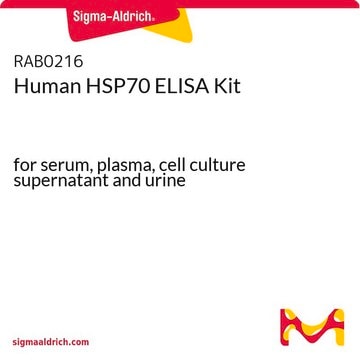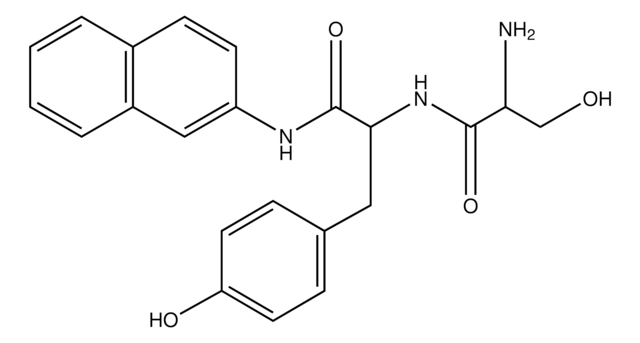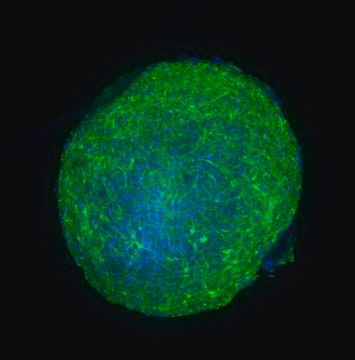H0273
Monoclonal Anti-Heat Shock Protein 25 antibody produced in mouse
clone IAP-28, ascites fluid
About This Item
Produits recommandés
Source biologique
mouse
Conjugué
unconjugated
Forme d'anticorps
ascites fluid
Type de produit anticorps
primary antibodies
Clone
IAP-28, monoclonal
Poids mol.
antigen 25 kDa
Contient
15 mM sodium azide
Espèces réactives
chicken, bovine, frog, rabbit, guinea pig, turkey, Drosophila, mouse, rat, human
Technique(s)
immunohistochemistry: suitable using frozen sections of chicken gizzard smooth muscle
indirect ELISA: suitable
indirect immunofluorescence: suitable using formalin-fixed, heat-shocked cultured chick embryo fibroblasts
radioimmunoassay: suitable
western blot: 1:500 using turkey gizzard extract
Isotype
IgG1
Numéro d'accès UniProt
Conditions d'expédition
dry ice
Température de stockage
−20°C
Modification post-traductionnelle de la cible
unmodified
Informations sur le gène
human ... HSPB1(3315)
mouse ... Hspb1(15507)
rat ... Hspb1(24471)
Catégories apparentées
Description générale
Spécificité
Immunogène
Application
- immunoblotting
- enzyme linked immunosorbent assay (ELISA)
- radioimmunoassay (RIA)
- immunocytochemistry
- immunohistofluorescence assay
- immunopurification
Actions biochimiques/physiologiques
Forme physique
Stockage et stabilité
Clause de non-responsabilité
Vous ne trouvez pas le bon produit ?
Essayez notre Outil de sélection de produits.
Code de la classe de stockage
10 - Combustible liquids
Classe de danger pour l'eau (WGK)
nwg
Point d'éclair (°F)
Not applicable
Point d'éclair (°C)
Not applicable
Certificats d'analyse (COA)
Recherchez un Certificats d'analyse (COA) en saisissant le numéro de lot du produit. Les numéros de lot figurent sur l'étiquette du produit après les mots "Lot" ou "Batch".
Déjà en possession de ce produit ?
Retrouvez la documentation relative aux produits que vous avez récemment achetés dans la Bibliothèque de documents.
Notre équipe de scientifiques dispose d'une expérience dans tous les secteurs de la recherche, notamment en sciences de la vie, science des matériaux, synthèse chimique, chromatographie, analyse et dans de nombreux autres domaines..
Contacter notre Service technique








